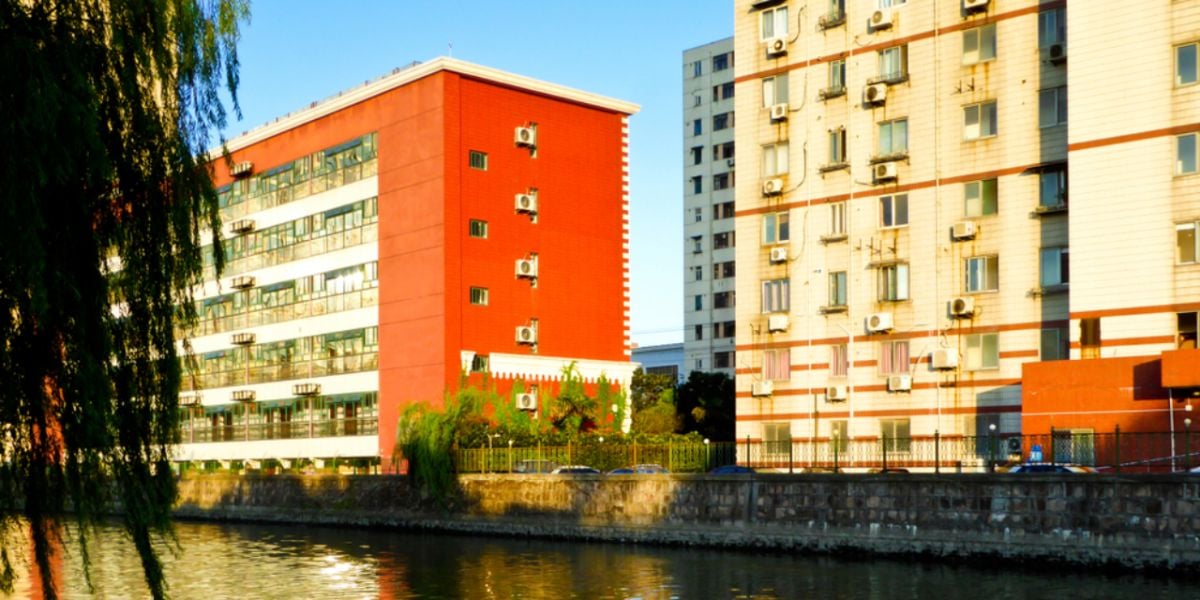
Shanghai has continually appeared close to the top of the list of cities with the most expensive real estate in the world. It also remains the most expensive city in mainland China (followed closely by Shenzhen) and the one most popular with expats.
Things to consider before buying property in Shanghai as an expat
It is legally possible to buy property in Shanghai as an expat. However, in addition to having a hefty sum in the bank, you will need to fulfill several other conditions.
The most important of these conditions is that you will need to have resided in the country legally for at least a year. This will typically involve providing proof that you have been working or doing business in Shanghai.
You will also be asked to provide tax receipts for most of the duration of your stay — the exact period differs depending on which region you plan to buy property in. For Shanghai, you will need to provide copies of your Chinese tax receipts for the last 12 months out of the past 24 months of your legal stay in the country.
Another condition is that you will need to use the property for residential purposes only — you are not permitted to rent it out or keep it as an investment. Note that the right to buy refers only to residential property, and you won't be able to purchase commercial property unless you own a company in China.
The most important legal aspect of buying residential property in China is that, technically, you will actually be leasing the land that the building stands on for a period of 70 years. Theoretically, upon the expiry of this period, the lease should be renewed, but the Chinese Ministry of Housing and Construction retains the right to void your lease and pay you compensation (which can be significantly lower than the said property's market value).
How to buy property in Shanghai?
When going about your house hunting in Shanghai, it is generally advised to do quite a bit of research, as the real estate market in China is very different from that of most Western countries. Most people would start by contacting a real estate agency and consulting an agent about the properties in your price range as well as the process of purchasing them. It is also advised that you contact an international real estate agency (as opposed to a local one), as global real estate agencies are generally more knowledgeable about the specifics of buying property in the city as a foreigner, as well as the legal aspects involved.
Generally, however, you will need to go through the following steps:
- First, you will need to specify the characteristics of the apartment or house you are looking for and pass them on to your real estate agent.
- Second, you will need to obtain proof that you have resided in China legally for over a year from the local Municipal Bureau of Public Security.
- Once you have found a suitable property, you will need to sign a preliminary agreement that includes all the terms and conditions of the deal — at this point, you will also need to pay 1% of the agreed-upon selling price.
- You will then go on to draft and finalize the official sales contract, which will need to be notarized.
- Finally, you will need to visit your local Foreign Affairs office and have the purchase approved by the government.
What budget is required for buying property in Shanghai?
As has already been mentioned above, Shanghai is China's most expensive city when it comes to real estate. Accommodation in Shanghai's central areas would go for RMB 123,000 and more per square meter on average and will get down to 48,000 RMB as you move into the outskirts of the city.
Taking out a loan at the bank to buy property in China is quite complicated, and it's an option rarely used by expats. Most real estate transactions in China are conducted in cash (without the use of mortgages), and this speeds up the development of the real estate market even further.
Note that most listed house prices in Shanghai don't include taxes and other fees, such as the real estate agent's commission. These can amount to about 5% of the selling price.
When you and the house owner settle on a price, you will need to submit a letter of intent together with a deposit. You will then be signing the sales and purchase agreement — this document will outline the timeline for further payments, which include the second deposit and the final payment.
Though quite uncommon, taking out a mortgage as an expat in China is not entirely impossible. Note, however, that you will need to be able to make a sizable down payment — typically around 40%.
Mortgage interest rates in China are set by the National Interbank Funding Center for all banks. These are adjusted yearly or monthly. All loans in China have limits based on the duration of the loan and the applicant's age. The maximum loan term in China is 30 years.
Expats in China can also take out loans in foreign currency at international banks. If you take out a loan from an international bank, you may be able to benefit from lower interest rates.
Where to buy property in Shanghai?
The most desirable (and pricey) locations for buying property in Shanghai are the city's central districts. Huangpu is one of the most desirable areas as it covers the historic Bund waterfront and part of the former French Concession with its spacious boulevards. The modern Pudong, across the River from Huangpu, is also in-demand. Further out, you will find the modern suburb of Gubei with a lot of in-demand housing for those who can afford it.
Other popular districts are Hongkou and Changning. There are also themed new towns in Shanghai that replicate popular destinations in Europe: Thames Town (United Kingdom), Pujiang (Italy), Anting (Germany), and others.
As with most other cities in China and abroad, property in Shanghai gets more affordable the further you move away from the center. Some of the cheapest places to purchase property in the city are the suburbs of Jinshan (southwest of the city), Chongming and Fengxian.
Despite the high prices, property in Shanghai is in great demand, which results in a shortage of housing. The local government is responding to the housing shortage by expanding construction — Shanghai is the city where the building never stops.
What types of accommodation are available for sale in Shanghai?
Shanghai offers a variety of accommodation options: apartments, individual houses, villas, studios, etc. Most of the available housing is already well-furnished and comes equipped with the standard set of appliances: a washing machine, a TV set, an oven, and an air conditioning system. Most modern residential buildings in Shanghai have standard western-style apartments. However, if you are thinking of purchasing a place in an older building, the apartments there may be more Chinese style.
Chinese apartments generally have rather small rooms. Kitchens also tend to be more utilitarian and just big enough to house all the necessary kitchen appliances. Most apartments are equipped with gas, but in some cases, you may need to use an electric cooker. You won't find bathtubs in most apartments in Shanghai unless you are renting something quite expensive. Most apartments come with balconies. However, balconies can be quite small, and most families in China use them for drying clothes and storage rather than as a place to enjoy the views from.
Buy or rent in Shanghai?
Whether you should buy or rent in Shanghai is definitely a personal decision. However, most expats living in the city, even long-term, opt for renting property. There are several reasons for that.
First, real estate in Shanghai is notoriously expensive. In fact, buying property in the city is out of reach for nosy Shanghai residents. Those who do buy property in Shanghai have to be weighed down by heavy mortgages. Consider that a standard two-bedroom apartment in Shanghai can cost upwards of $1.5 million, while the average salary in the city is around $1,800 per month.
With that, Chinese citizens have very limited options when it comes to investments. Buying a house is considered the safest way to keep one's money. This is why real estate remains their number one choice and accounts for over 70% of household wealth in China.
Another thing to consider when making your decision is that buying property in Shanghai is much more expensive than renting property. The price-to-rent ratio in Shanghai is very high and owning property is actually less cost-effective than renting.
Expats also prefer renting in Shanghai if they feel their residency in China lacks stability. Becoming a permanent resident in China is exceptionally difficult for expats, even if they have been legally working in the country for a long time or are married to a Chinese citizen. Purchasing property in China also doesn't give expats any additional rights when it comes to permanent residency.
Renting in Shanghai
As we've mentioned above, most foreigners in Shanghai opt for renting accommodation. Purchasing property in Shanghai requires a substantial financial commitment and a fair share of red tape. Renting, on the other hand, is much easier and allows expats to be more flexible about their location and. More than 50% of Shanghai's renters choose to live in the historic center known as Puxi and covering the districts of Huangpu, Yangpu, Hongkou, Putuo, Zhabei, Xuhui, and Jing'an.
The best way to get acquainted with Shanghai's real estate market is to check apartment hunting websites like Smartshanghai. This will give you a good idea of house prices in the area you like and what type of accommodation is within your budget. You can also check local resources like Anjuke, 58.com, and others. It's also a good idea to check with local expat forums such as Shanghai Expats.
Most apartment ads will indicate how big the apartment is, where it is located, rent conditions (deposit amount) and whether the ad has been posted by a real estate agent or the owner. If you are interested in taking a look at the place, message the post's author with your contact details. In China, the most popular way to communicate online is through the WeChat app. The app has over 900 million users and is the number one tool you will need for your everyday life in China. WeChat is primarily a messenger app — but you can also use it for shopping online, paying for goods and services via the QR code, and more.
Remember that when you are buying property in China, you are buying land rights for a period of 70 years. This is as close to private ownership as one can get in China. Once your lease expires, it will be automatically renewed. However, no law guarantees the extension of your lease. If you want to sell your property in China, you will be able to transfer the money you've received as a result of the sale abroad, but this must be done in one transfer.
Under existing regulations, foreigners are only allowed to purchase one piece of property for personal use. Note that when you purchase property, you must sign a legal document that says you've purchased the accommodation with the sole purpose of living in it. In practice, though, a lot of people rent out their accommodation.
Useful links:
Century 21 Global Real Estate Agency, Shanghai
Prorel="nofollow"perty Law of the People's Republic of China
We do our best to provide accurate and up to date information. However, if you have noticed any inaccuracies in this article, please let us know in the comments section below.








